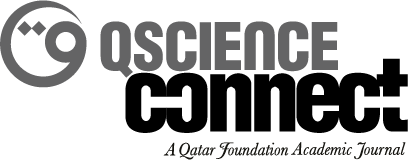-
oa On Film and Medicine: Reflections on “Medfest Egypt”, An International ‘Film for Health’ Forum
- Source: QScience Connect, Volume 2022, Issue Issue 3- Medical Humanities in the Middle East Conference, Aug 2022, 10
-
- 31 August 2022
Abstract
Paper 1: Introduction to Film and Medical Humanities
In recent years, medical humanities have become an important component of medical education. Student-selected modules, and special courses encourage medical students to reflect on the portrayal of illness and suffering as a means of nurturing empathy through watching film. Understanding the lived experience of sickness from a patient and family perspective is a requirement for all healthcare professionals. Role play and simulation focusing on doctor-patient encounters is commonly practised in undergraduate courses.
Academic institutions such as the Royal College of Psychiatry advocate the use of film as a platform for discussing mental health through their annual UK Medfest (https://www.medfest.co.uk/what-is-medfest). The WHO recently used film as an educational and cultural backdrop for exploring health (https://www.euro.who.int/en/media-centre/events/events/2019/10/the-health-for-all-film-festival-inviting-filmmakers-to-submit-health-for-all-short-videos). Hospitals, too, have embraced film as a learning and entertainment medium by building purpose-built cinemas within hospitals, as seen in Medicinema in the UK (https://www.medicinema.org.uk/).
Paper 2: Describing ‘Medfest Egypt’
Medfest-Egypt is an interactive program of films originally launched in Egypt in 2016 by Dr. Mina El-Naggar, and Dr. Khalid Ali. and intended for a diverse medical audience. The main objective of this forum was to assimilate wider social and artistic perspectives into clinical encounters, all via film. With the British Council as its principal funder, four editions have been delivered, “Under the Skin” (2017), exploring mental health; “About Her” (2018), reflecting on women’s health; “Tiny Marks” (2019), investigating children’s health, and ‘’Moments’’ (2022) portraying life-defining moments in family lives. In its 4 editions, Medfest-Egypt screened films from the MENA region, Europe, North and South America and Africa attracting around 7000 audience members involving 140 panellists in the Q and A sessions. Medfest screenings travelled within Egypt: Cairo, Alexandria, El Minya, Assiut, Sohag, and Luxor; and abroad in Tunisia, New York, and London.
Paper 3: Three Short films from ‘Medfest Egypt’
Over the course of ‘Medfest-Egypt’ editions, we have interspersed short films with full-length feature productions. Whether in conventional style or creative animations, short films can impact viewers in powerful, enduring ways. Furthermore, grouping evocative short films together affords an opportunity to explore the nuances of a subject within a single presentation providing a compelling, creative medium for clinical teaching. We will present three short films from different Medfest editions: Father and Daughter (Michaël Dudok de Wit, Netherlands, 2000), Mare Nostrum (Rana Kazkaz and Anas Khalaf, Syria, 2016), and Daughter (Daria Kashcheeva, Czech Republic, 2019). These films comprise three trenchant variations on father-daughter relationships, estrangement, and the dynamics of reconciliation and forgiveness at the end of life


